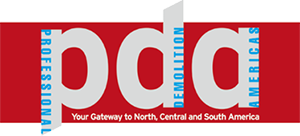FACING UP TO THE FLU
Published: 4/3, 2020
As this issue of PDa goes to press, the number of coronavirus cases across the U.S. is growing, with several deaths already attributed to the disease. No one is quite sure how the virus will unfold; predictions run the gamut from a larger than usual severe flu outbreak to a pandemic on the order of the Spanish Flu that devasted the country and the world in the years after World War I.
In an age where the world’s knowledge is available at one’s fingertips, there’s almost too much information about the coronavirus going around—rumors and twice-told tales that spread almost as quickly as the virus, mutating with new, not always accurate details or omissions with every retelling.
It’s also a reminder of the lasting power of world-of-mouth, the oldest form of advertising and publicity that is every bit as effective, if not more so, than the latest digital channel. Small wonder that there’s a run on respiration masks, hand disinfectant, and other defense tools at stores across the country. (I’ve yet to hear of similar demand for chicken soup, which I grew up learning was the cure for all ills.)
Every wise business owner knows that, like the old sports adage, the best defense against challenges both known and otherwise is a good offense. That means taking thoughtful, measured steps to address potential vulnerabilities and adopting habits that typically make sense regardless of whether there’s a threat or not.
In the case of the coronavirus, for example, medical experts say simple measures such as washing hands and avoiding touching one’s face is an effective way to prevent contracting and spreading germs, including relatively benign colds that may not be as debilitating as flu, but can sap productivity nonetheless. Compare that with scrounging all the respiratory masks on the shelf, which, by the way, are typically more beneficial for those already infected with the flu to prevent spreading it to others, rather than the other way around.
You can apply this approach to the daily routines of your business. For example, regularly processing receipts into your accounting system every day or two takes only a few minutes, compared with the potentially hours-long reconciliation sessions at deadlines where you might overlook an expense or why it was incurred.
Taking the time to make sure your insurance is up to date, your computers are fully protected against unwelcome intruders, and your employees’ emergency contact numbers are current will likewise enhance your readiness in the event of an emergencies or unexpected events, which never occur at one’s convenience.
The takeaway from all this is that being proactive is almost better than having to react to something, particularly if it’s a new challenge or situation. But there’s a difference between making informed decisions and taking wise steps, and taking a so-called “shotgun” approach with limited effectiveness that doesn’t merit the cost.
For now, let’s all hope the coronavirus threat recedes as quickly as it peaks, that those already infected recover, and the rest of us avoid any exposure or long-term effects. Be safe, be wary, and be smart.
Jim Parsons, Senior Editor
jim.parsons@pdamericas.com
